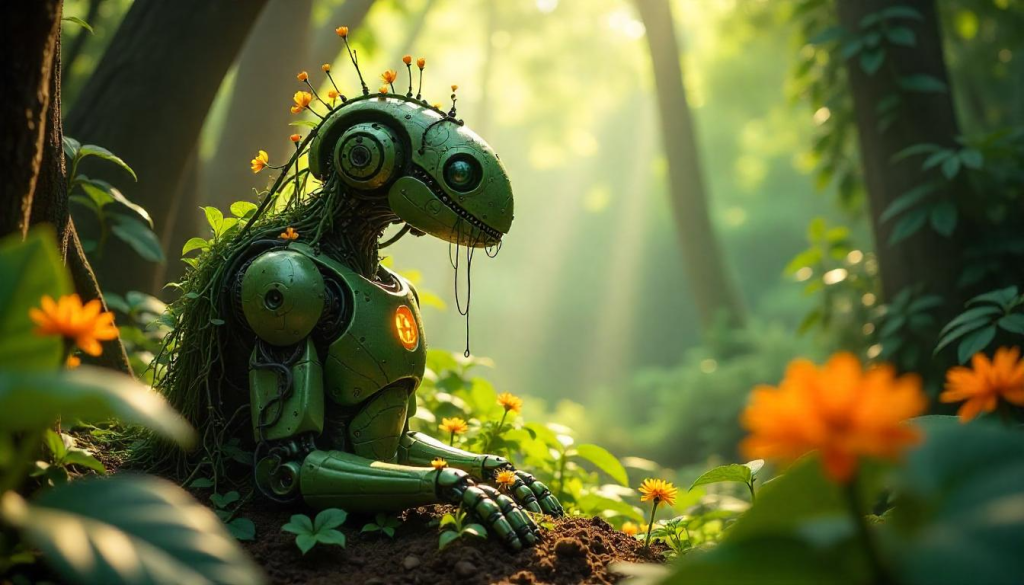Artificial Intelligence (AI) is everywhere. From voice assistants like Siri and Alexa to self-driving cars and smart home devices, AI has become a part of our daily lives. But as technology advances, a big question is on everyone’s mind: When will AI take over? This question brings excitement to some and fear to others. Let’s break it down and explore what it really means when people ask about AI “taking over.”

What Does “Take Over” Mean?
When we say “take over,” people usually imagine robots controlling the world, replacing all human jobs, or even becoming smarter than humans. But AI taking over can mean many things:
-
Replacing certain jobs with automation.
-
Making decisions faster and better than humans.
-
Becoming a part of every aspect of our lives.
-
Gaining control without human oversight (this is the scary part).
Not all of these are bad. In fact, many are already happening in helpful ways. Still, the future depends on how we design and use AI.
Has AI Already Taken Over Some Areas?
Yes, in many ways, AI has already “taken over” specific tasks:
-
Customer service: Many companies now use AI chatbots to answer questions 24/7.
-
Healthcare: AI helps detect diseases, suggest treatments, and even assist in surgeries.
-
Finance: AI is used to detect fraud, automate trading, and manage risk.
-
Transportation: Self-driving cars and route optimization apps rely on AI.
-
Content recommendations: What you see on YouTube, Netflix, or TikTok is mostly chosen by AI.
These changes show that AI is already a powerful assistant. But it hasn’t “taken over” in the way movies or science fiction suggest.
Will AI Take Our Jobs?
This is a common worry, and it’s not unfounded. AI can do many tasks faster and without needing breaks. Jobs like data entry, customer support, or even some writing tasks can be done by machines now.
But here’s the human side of it: AI will change jobs more than it will erase them.
New jobs are also being created:
-
AI trainers
-
Prompt engineers
-
Robot mechanics
-
Data ethicists
-
AI safety experts
Just like the industrial revolution replaced many old jobs but created new ones, AI is doing the same. The key is to adapt and learn new skills.
Will AI Ever Become Smarter Than Humans?
This is where things get interesting—and a bit scary. Experts call this moment the “Singularity”—a point when AI becomes so advanced that it can improve itself without human help. If this happens, AI could become far smarter than any person. But here’s the truth: We don’t know when—or even if—this will happen. Some scientists say it could happen in 20 years. Others say it may never happen. The debate is ongoing. Important people like Elon Musk and the late Stephen Hawking have warned about AI becoming too powerful. They believe we must set rules and controls before it’s too late.
What Can’t AI Do Yet?
Even though AI is powerful, it still has limits:
-
It doesn’t understand emotions like humans do.
-
It lacks common sense.
-
It can’t truly be creative—it can mix old ideas, but not invent new ones.
-
It doesn’t have consciousness—AI doesn’t “know” it exists.
-
It can make mistakes, especially if the data it’s trained on is wrong.
So, while AI is great at certain tasks, it still needs human guidance.
Will AI Take Over the World?
This is the big, scary question. Movies like The Terminator and The Matrix show a future where machines rule the world. While these are fiction, the fear behind them is real.
To avoid a dangerous future, we need:
-
Ethical AI development
-
Global cooperation
-
Transparency in AI systems
-
Humans always in control
Many researchers and organizations are working on AI safety to make sure that AI helps humanity instead of harming it.
How Close Are We to General AI?
Right now, we have what’s called Narrow AI. This means AI can do specific tasks very well, like recognizing faces or translating languages. General AI would mean a machine that can do anything a human can do—think, reason, feel, and learn across many subjects. We are not close to this yet. Some estimates say we are at least 50–100 years away, if not more. So no, AI isn’t taking over the world tomorrow.
What Should We Do Today?
Instead of fearing AI, we should focus on preparing for a future with it. Here are a few things we can do:
-
Stay informed: Learn how AI works and what it can and can’t do.
-
Upskill: Focus on skills that AI can’t easily replace—creativity, critical thinking, emotional intelligence.
-
Demand ethical standards: Encourage governments and companies to create laws and rules around AI use.
-
Use AI responsibly: Whether you’re a student, a business owner, or a developer, make sure your use of AI respects people’s rights and privacy.
Final Thoughts
So, when will AI take over? The truth is: It already has, in small ways—and it will continue to grow. But a full “takeover” like in science fiction is still far away, and maybe never will happen. AI is a tool. How we use it matters. If we build it with care, transparency, and ethics, AI can help solve big problems—from climate change to healthcare to education. Instead of fearing AI, we should focus on working with it, guiding its development, and ensuring it serves humanity. The future is not about machines taking control. It’s about humans using smart tools to build a better world.